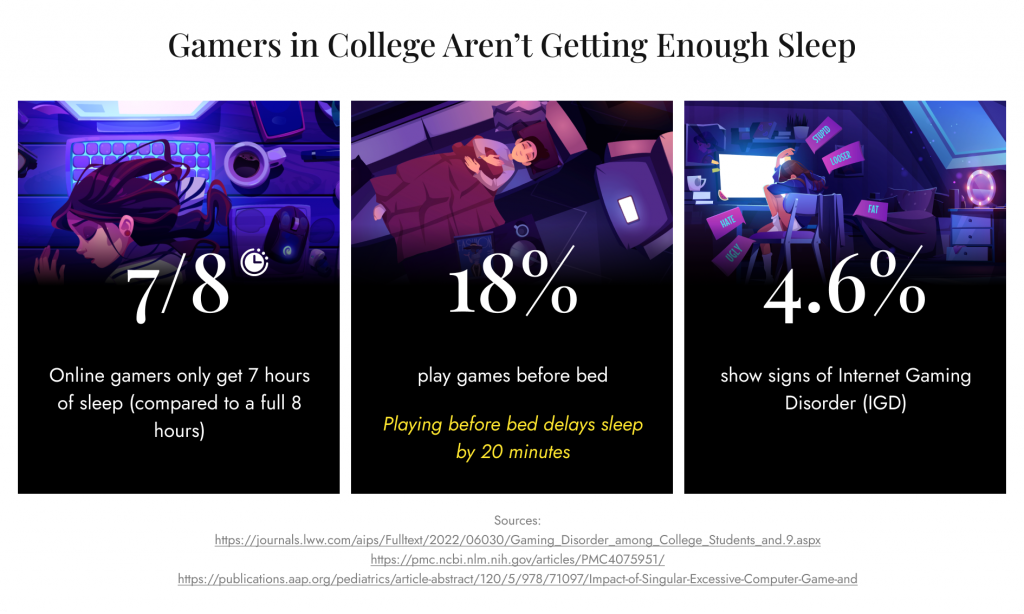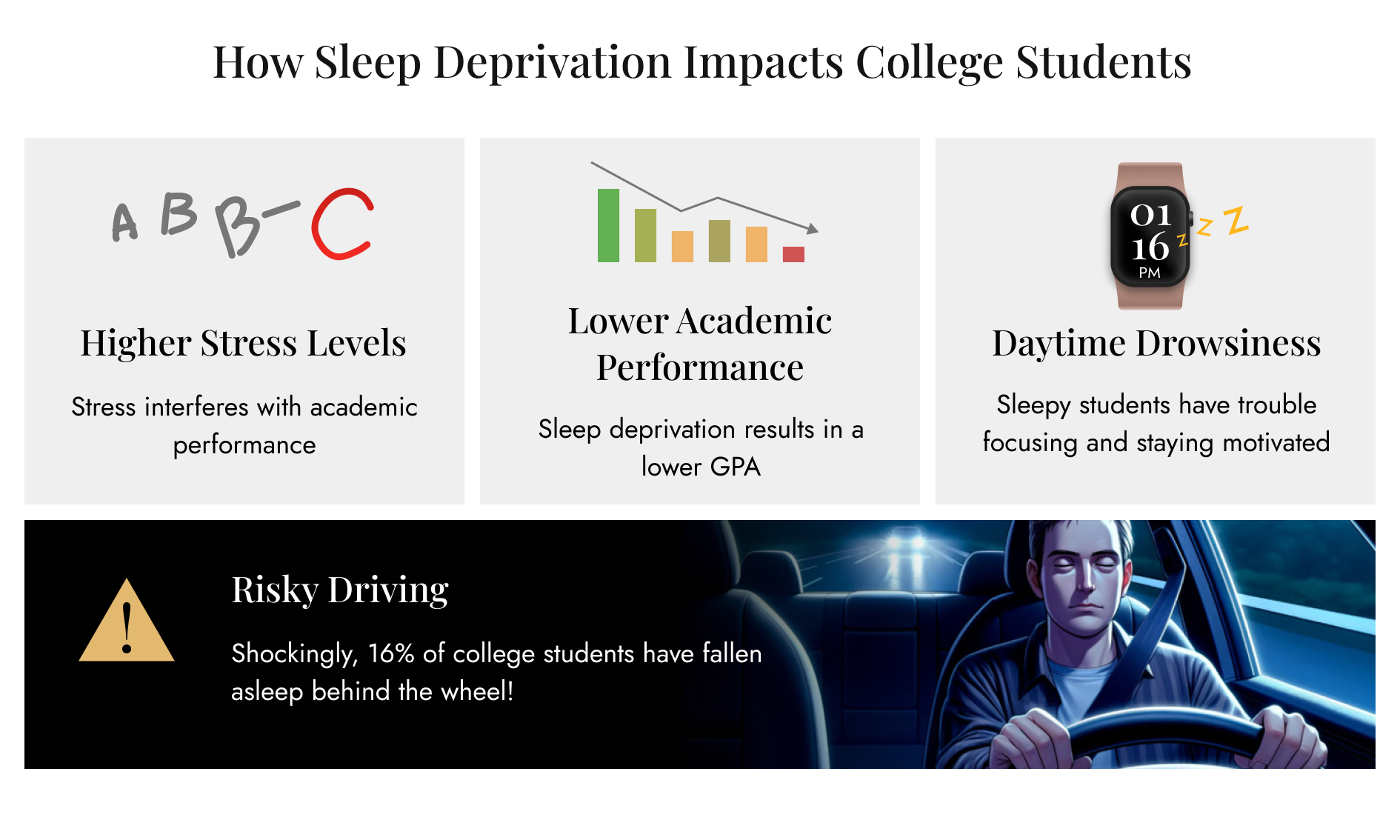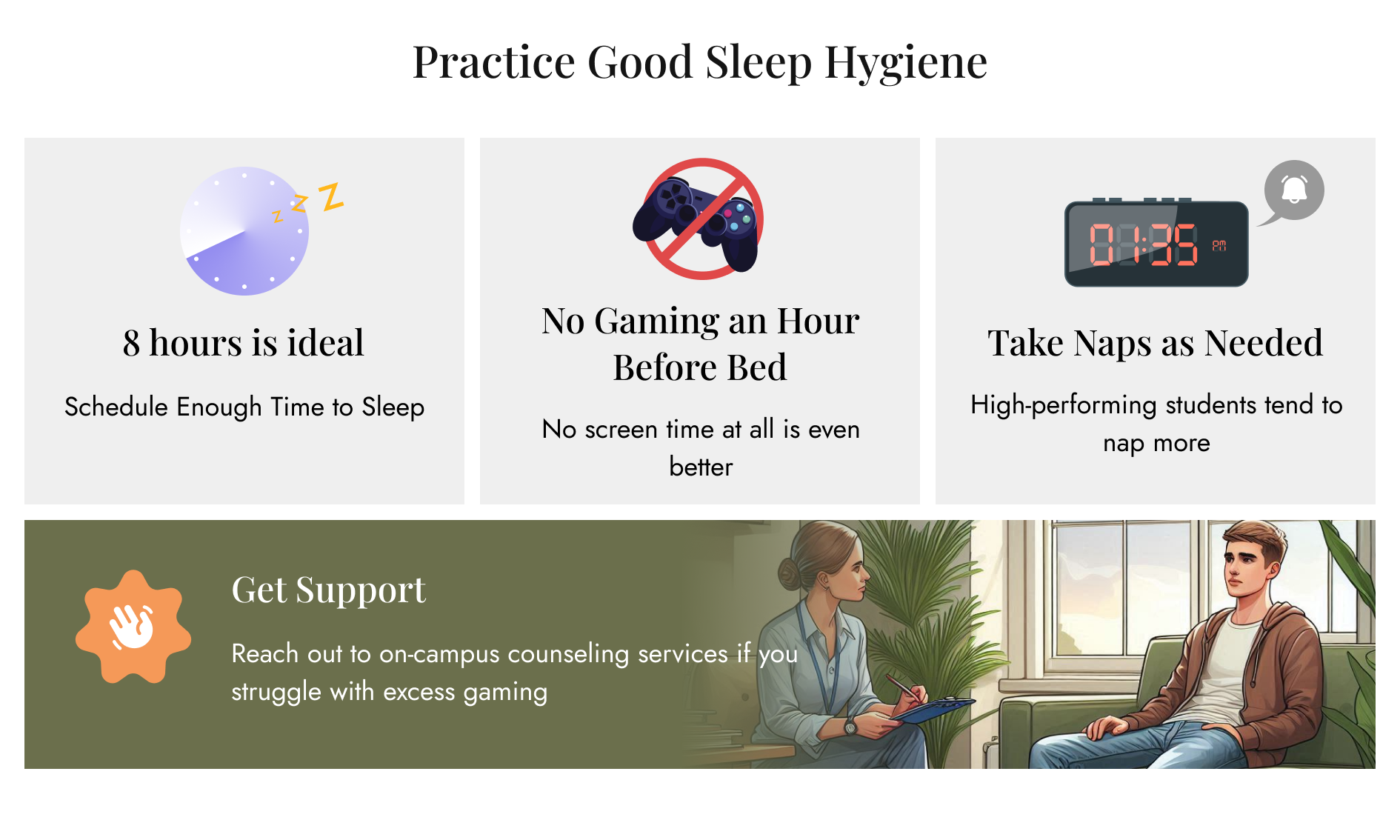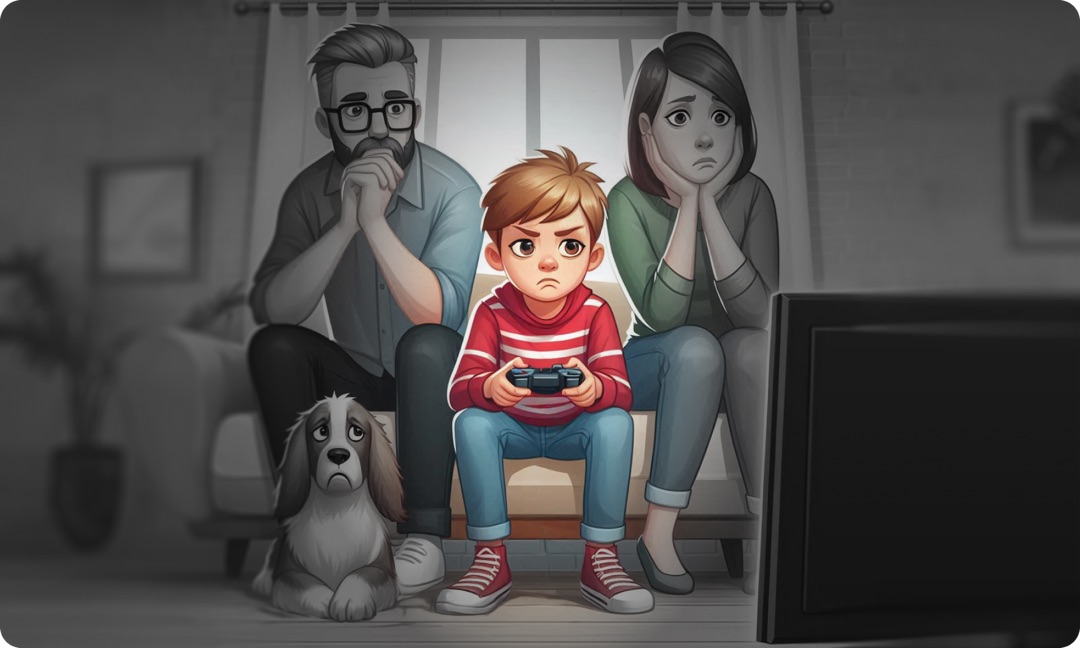Passing classes and getting a high Grade Point Average (GPA) can make or break a student’s career prospects. And getting a good night’s sleep can be critical to achieving academic success.
But for many students, getting to bed on time can be a challenge.
There’s a pile of coursework and readings that have to get done. There are lectures to attend and all-night cramming sessions before midterms. And of course, the temptation to spend all night partying.
It’s also the first time a lot of students are out on their own. That independence can be a major adjustment. Without a school bus to catch in the morning and parents to make sure they turn in on time, it can be hard to get in a good rhythm.
But in recent years, there’s been another major obstacle to students getting the sleep they need. College students aren’t just staying up late to study – they’re also going on late-night gaming binges.
It’s understandable, really. After a busy day spent in lecture halls and library study rooms, plenty of people will want to unwind with a gaming session – even if it goes past midnight. And lots of students will turn on their laptops to work on a term paper, only to load up an online game instead.
It’s normal and it feels natural, but it’s also becoming a very serious issue. Late-night gaming is affecting students’ sleep, which means it’s also affecting their performance, their wellbeing, and even their safety.
How Many College Students Are Overdoing It?
Not every college student is a gamer, of course. And many of those who game as a hobby are able to do it in moderation.
But for some, it’s a habit they have trouble controlling.
In fact, a study from 2022 found that 4.6% of college students who played online games exhibited symptoms of internet gaming disorder (IGD).
If you haven’t heard of IGD, it’s a diagnosis that has been added to the DSM-V (the diagnostic manual for mental health professionals) and is characterized by a pattern of gaming that is disruptive to a person’s life. And that includes their sleep – studies show that people with IGD tend to sleep 5 hours a night or less.

But that doesn’t even capture the entire scope of the problem. Online gamers who don’t exhibit signs of gaming disorder only sleep an average of 7 hours per night. And 18% of college-aged adults report playing video games before bed.
This is a problem, since playing video games before bed has been shown to delay sleep by more than 20 minutes on average. That might not sound like much, but if it happens every night, it can create a cumulative sleep debt that has a real impact on someone’s day to day life.
Why Late Night Gaming Can Be Harmful for College Students
Not getting enough sleep is bad for anyone. Sleep deprivation comes with a host of adverse effects on physical and mental health.
But it can be even worse for college students, who need to be alert and attentive throughout a large portion of their day.
Here are some of the major issues associated with late-night online gaming in students.
Stress
Researchers have found a significant correlation between sleep deprivation and stress levels in college students.
This is troubling, since college is already full of stressors. There are strict deadlines, high-pressure exams, and schedules that are difficult to manage. Adding gaming-induced sleep deprivation to the mix simply makes things worse.
It can also interfere with their success. Students rank stress as the top factor that has a negative impact on their academic performance.
Daytime Drowsiness
Half of all college students claim they experience daytime drowsiness.
This isn’t simply an uncomfortable feeling – it also interferes with their day to day activities. Feeling drowsy during the day means struggling to concentrate, perform tasks, and study effectively.
Lower GPAs
Researchers have actually quantified the effect of sleep disruption on academic performance. Students who don’t get enough sleep have an average GPA of 2.74, compared to a GPA of 3.24 for students who get a full night’s rest.
That’s a difference of 0.5, which might not look big on paper is astronomical in reality. It’s the difference between being a C student or a B student. And for a lot of people attending college, it’s the difference between a passing grade and a failing one.

This slip in GPA isn’t surprising, since being drowsy can affect concentration and motivation, both of which are important for earning a better grade.
But it actually goes deeper than that. Sleep is also integral to memory consolidation. We learn things during our waking hours, but our brain stores that information when we’re in deep sleep. Getting enough sleep, then, helps us remember all the facts and figures we take in.
So even when a student spends all day studying and attending lectures, a lot less of that information will stick if they’re not getting proper sleep. And that will make it much harder for them to succeed in their classes.
Risky Driving
Late-night gaming binges don’t just affect college students’ mental health – it also puts them at physical risk.
This is especially evident when it comes to driving. Being safe on the road requires the driver to be alert and aware of their surroundings, two things that are much more difficult when feeling sleepy.
This is concerning, since a survey from the National Sleep Foundation discovered that approximately half of all young adults drive while drowsy at least once per month.
Even more disturbing, 16% of students claim to have fallen asleep behind the wheel.
Pushing back sleep in order to play games can seem harmless. But these statistics show that it can actually put a student’s life on the line.
Who’s Sleep Is at Risk?
While a large percentage of college students play online games, there are a few risk factors that make it more likely that it will affect their sleep.
Some of the most prominent risk factors have to do with a student’s background. If they have strained relationships with their parents, a history of substance abuse, or psychiatric disorders in the family, they’re more likely to have trouble regulating their gaming.
Interestingly, gender doesn’t appear to be a significant factor. While men are more likely to play online games, women and men are equally likely to exhibit symptoms of gaming disorder.

Risk factors aside, anyone can fall into disordered gaming patterns – especially in college. In fact, many students will take up gaming as a way of coping with the stress of studying and balancing all their coursework. This disrupts their sleep, which increases their stress levels even more – and that makes them spend even more time gaming.
It’s a vicious cycle, but one that can be broken.
What Can Be Done to Help?
Clearly, sleep deprivation is a serious problem for people attending college. It’s an even more prominent issue for gamers, since their hobby has a way of eating into their sleep.
Thankfully, there are some strategies that can help students get the sleep they need.
Advice for Students
For students, the best thing to do is to improve their sleep hygiene.
Mostly, that means avoiding video games at least one hour before heading to bed. Preferably, doing without screens altogether.
It’s a simple step, but it does wonders for sleep quality and ensuring a restful night.
Students struggling with compulsive gaming behavior can also seek counseling. Most campuses have support staff who can help with gaming disorder and assist students in establishing better sleep habits.
Advice for Administrators
College officials can’t force students to go to bed at a reasonable hour. But there are some measures that can encourage everyone on campus to get the sleep they need, including:
- Later Class Times: Scheduling morning classes for 10 a.m. or later gives students the opportunity to get a full night’s sleep.
- Nap Rooms: Contrary to popular belief, napping isn’t for the lazy – more than half of high-performing students take regular naps. Setting up quiet, comfortable, dimly lit rooms on campus encourages students to rest mid-day and catch up on the sleep they’re missing.
- Education Program: Many students don’t realize that sleep deprivation is setting them back. Education and outreach campaigns can help them understand the value of a good night’s sleep and remind them to practice good sleep hygiene.
Gaming Is Great – But Sleep Is Essential
There’s absolutely nothing wrong with gaming. It’s a fine hobby, a great way to unwind, and a fun way to spend time alone or with friends.
But when it encroaches on sleep, it gets in the way of everything students strive for. Late-night gaming can be the culprit behind high stress levels, lower grades, and worse mental health overall.
That’s why good sleep hygiene is essential in college. And it starts by logging off at a reasonable hour – and maybe taking a nap once in a while.






